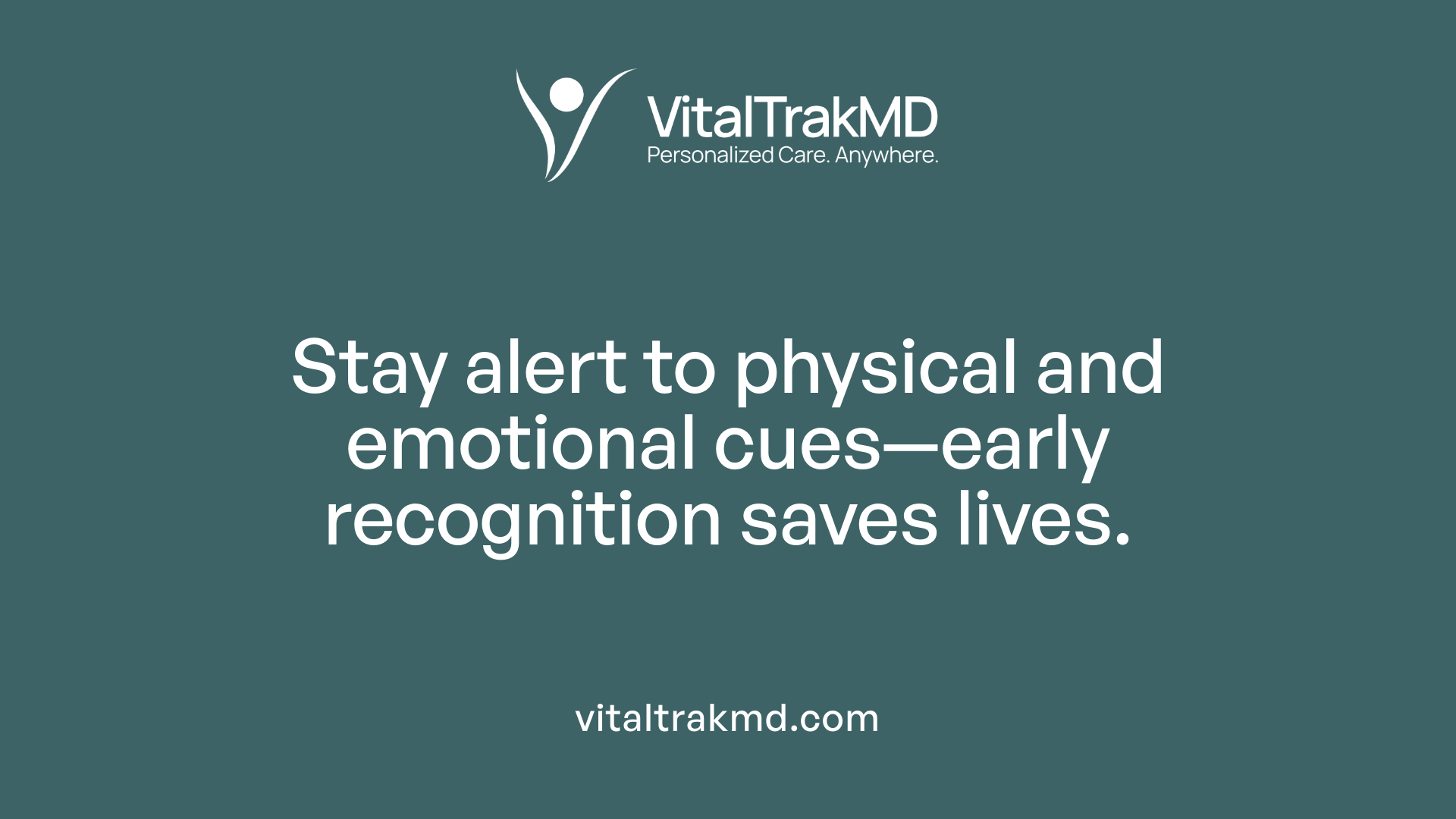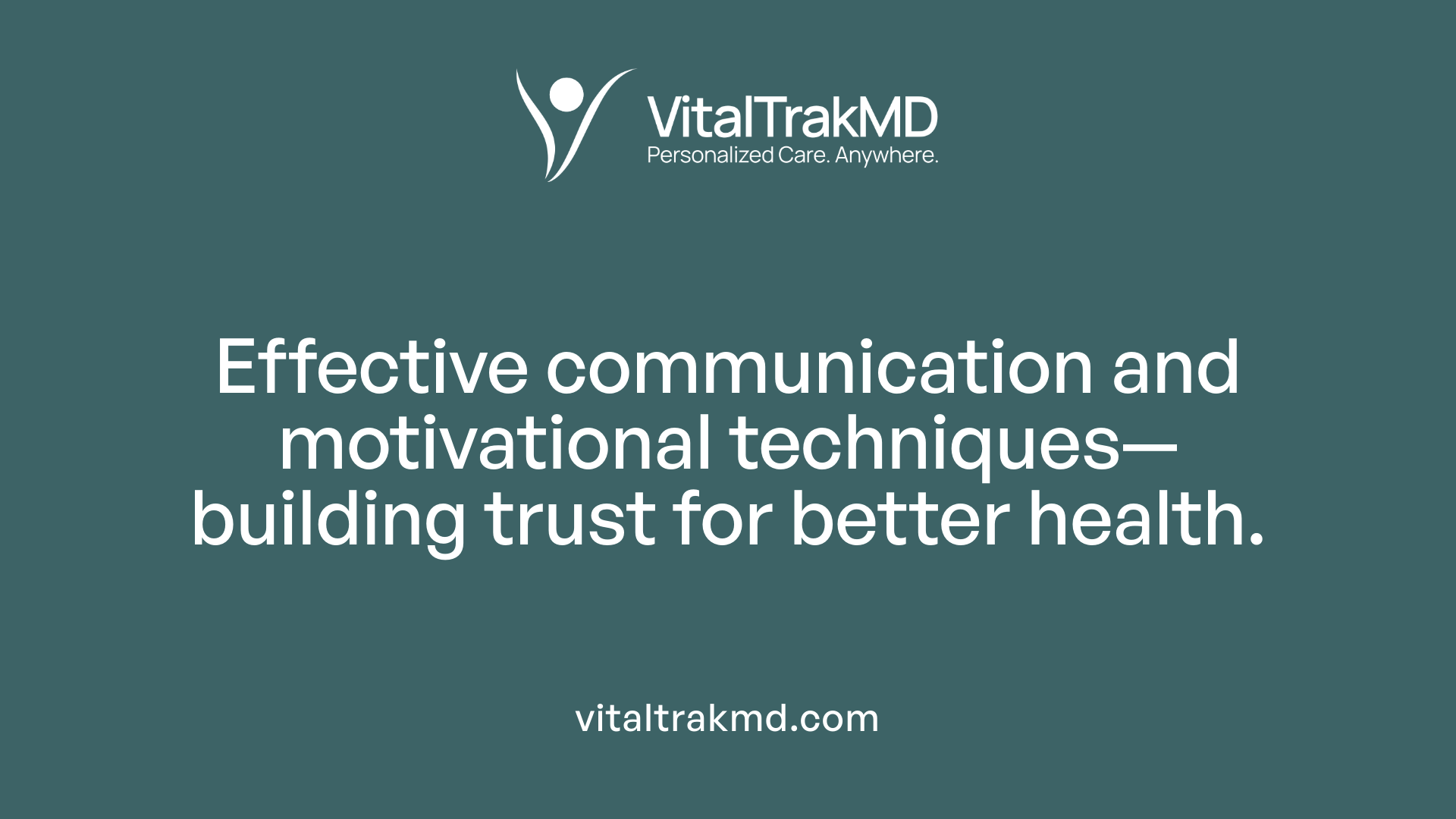Avoiding Common Mistakes in Self-Managing Chronic Illness

Introduction to Self-Management in Chronic Illness
Managing chronic illnesses effectively requires a comprehensive understanding of self-care principles and strategies. While many patients possess basic disease knowledge, improper management and common pitfalls can hinder health outcomes. This article explores the critical components of avoiding mistakes in self-managing chronic conditions, emphasizing proactive approaches, effective communication, tailored education, and systemic support to maximize health, wellbeing, and quality of life.
Understanding the Foundations of Self-Management
What is the first step to take when self-managing a chronic illness?
The initial move when beginning self-management of a chronic condition is to seek support promptly, especially if feelings of being overwhelmed or unable to cope arise. Early action helps patients understand their illness better and develop effective strategies to manage it.
A crucial aspect is addressing emotional health by engaging in counseling, support groups, or mental health resources to cope with anxiety, depression, or feelings of loss. Educating oneself about the condition and establishing open communication channels with healthcare providers empower individuals to take control of their health.
Proactive engagement early in the disease process can significantly improve quality of life and enhance the ability to handle both physical symptoms and emotional stress. Integrating mental health support and timely information is vital for building confidence and resilience in managing chronic illnesses.
What are effective self-management strategies for chronic diseases?
Successful self-management depends on several practical approaches. These include gaining thorough knowledge about the illness, such as understanding symptoms, progression, and treatment options. Collaborating with healthcare providers through shared decision-making ensures care plans align with personal preferences and lifestyle.
Monitoring symptoms regularly helps detect changes early, preventing complications and supporting daily function. Maintaining a healthy lifestyle, including balanced nutrition, regular physical activity, avoiding tobacco, and limiting alcohol, enhances disease control.
Utilizing community resources and support programs can reinforce positive behaviors and provide emotional encouragement. Accessible, understandable health information enables individuals to stay informed and motivated.
Healthcare professionals trained in patient-centered care are essential in supporting effective self-management. They adapt interventions to each person's cultural background, preferences, and needs, fostering confidence and independence. Overall, combining education, lifestyle modifications, emotional support, and professional guidance creates a comprehensive approach to managing chronic diseases effectively.
| Aspect | Approach | Additional Details |
|---|---|---|
| Knowledge | Learning about the condition | Includes symptoms, treatments, and progression |
| Collaboration | Shared decision-making | Engages patients actively in their care |
| Monitoring | Symptom tracking | Helps detect early signs of deterioration |
| Lifestyle | Healthy habits | Diet, exercise, avoidance of harmful substances |
| Support | Community and healthcare | Resources, support groups, professional guidance |
Models and Frameworks that Guide Self-Management
What are the main models of chronic disease self-management?
Several established frameworks guide the development and implementation of effective self-management strategies for chronic illnesses.
The Chronic Care Model (CCM) is a widely recognized approach that transforms healthcare systems to better support patients. It emphasizes six interconnected components: community resources, health system support, self-management support, delivery system design, decision support, and clinical information systems. These elements work together to foster informed, active patients and prepared healthcare teams, ultimately improving health outcomes through enhanced patient-provider interactions.
The Patient-Centered Medical Home (PCMH) is another influential model designed to provide comprehensive, continuous, and coordinated care, primarily led by a primary care provider. The PCMH emphasizes team-based care, improved access to healthcare services, and a focus on patient safety and experience. It encourages active patient participation, personalized care plans, and regular follow-up, which are crucial for effective self-management.
Additional Concepts in Self-Management Frameworks include various behavioral and integrated care models. For example, the transtheoretical model of change guides understanding of patient motivation stages, supporting behavioral adjustments over time. The Fennell Four Phase Model highlights progression through diagnosis, adaptation, maintenance, and relapse prevention.
Table 1: Overview of Self-Management Models and Their Focus
| Model | Core Elements | Support Strategies | Main Goal |
|---|---|---|---|
| Chronic Care Model (CCM) | Community, health system, self-management | Education, decision support, information systems | Better patient engagement and health outcomes |
| Patient-Centered Medical Home (PCMH) | Team-based, continuous care | Care coordination, access, safety | Enhance care quality and patient satisfaction |
| Behavioral Theories (e.g., Transtheoretical) | Motivation, readiness | Tailored interventions, stages of change | Promote sustained health behavior change |
These frameworks underscore the importance of patient education, self-monitoring, coordinated care, and collaborative partnerships with healthcare providers.
By applying these models, healthcare systems can better address the complex needs of individuals managing chronic conditions, ultimately leading to improved health, quality of life, and reduced healthcare costs.
Common Challenges and Barriers to Effective Self-Management

What are common barriers and challenges in managing chronic conditions?
Managing chronic health conditions involves more than just following medical advice; it often requires overcoming various complex barriers.
One significant hurdle is the fragmentation of healthcare services. Patients frequently experience poor communication between healthcare providers, leading to uncoordinated care plans and decreased trust in the healthcare system. This disjointed approach can cause confusion about treatment routines and reduce adherence.
Structural obstacles also play a crucial role. Limited access to healthcare facilities, especially in rural or underserved areas, can delay diagnosis and ongoing management. Transportation issues, high out-of-pocket costs, and long waiting times further hinder timely access to necessary care.
Financial challenges are another major concern. The cost of medications, regular appointments, and necessary medical supplies may be prohibitive for many, decreasing the likelihood of proper treatment adherence.
Health literacy and emotional support deficits act as additional barriers. Patients often lack understanding of their conditions or how to manage symptoms effectively, which can lead to feelings of frustration or hopelessness. Emotional distress, depression, and anxiety are common among those with chronic illnesses and can further reduce motivation and engagement in self-care activities.
Environmental and socioeconomic factors also influence self-management. Physical limitations, unsafe neighborhoods, unhealthy living conditions, and socioeconomic disadvantages can impede lifestyle changes like regular exercise, healthy eating, and medication compliance.
Healthcare systems encounter their own challenges, including resource constraints, insufficient integration of preventive programs, and limited infrastructure for chronic disease management. These systemic issues complicate efforts to provide comprehensive, proactive, and patient-centered care.
Addressing these multifaceted barriers requires an integrated approach. Strategies such as improving healthcare coordination, expanding access through telemedicine or community programs, delivering tailored education to enhance health literacy, and providing emotional and social support are essential.
In sum, overcoming these obstacles involves efforts from healthcare providers, policymakers, communities, and patients themselves to create an environment conducive to effective self-management of chronic conditions.
Recognizing and Responding to Warning Signs

How can patients recognize and address warning signs and health cues?
Patients managing chronic conditions need to stay vigilant for early signals that their health may be worsening or that complications are developing. Recognizing these warning signs involves paying close attention to both physical sensations and emotional states. For instance, unexplained aches, increased fatigue, shortness of breath, or new pains could indicate the need for medical review.
Emotional cues are equally important; feelings of hopelessness, anxiety, sudden mood changes, or withdrawal from usual activities can signal underlying health issues that require attention. These nonverbal cues, including body language and facial expressions, also provide valuable insights into a patient's well-being.
Monitoring vital signs—such as blood pressure, blood glucose, or oxygen saturation—is a practical step for early detection. Keeping track of these measurements helps detect deviations from normal levels, sometimes before symptoms become severe.
Effective communication with healthcare providers is crucial. Patients should be prepared to describe their symptoms accurately and mention any recent changes. Using detailed, clear descriptions can help healthcare professionals make timely decisions.
Educating oneself about common warning signs related to specific chronic illnesses, like shortness of breath in asthma or irregular blood sugar levels in diabetes, empowers patients to respond effectively.
Prompt action, such as seeking medical advice when warning signs appear, can prevent exacerbations from escalating into emergencies. Patients should also maintain a list of concern areas and questions to discuss during medical visits.
In summary, recognizing health cues involves attentive observation, routine monitoring, and open communication. These strategies enable early intervention, better disease management, and improved health outcomes for individuals with chronic illnesses.
Evidence-Based Techniques for Improved Self-Management Outcomes

What are evidence-based approaches to improve self-management outcomes?
Implementing effective self-management begins with patient-centered strategies that emphasize collaboration between healthcare providers and individuals managing chronic conditions. Approaches grounded in evidence include conducting brief, structured assessments to identify patients’ needs, readiness, and confidence levels. These assessments help tailor interventions to improve engagement and adherence.
Shared decision-making is a core element, allowing patients to actively participate in developing their care plans and set achievable, personalized goals. Techniques such as goal setting often utilize the SLAM (Specific, Limited, Achievable, Measurable) framework, which enhances the likelihood of behavioral change by focusing on clear, manageable actions.
Another effective approach involves structured self-management programs like the Chronic Disease Self-Management Program (CDSMP). These programs, available in various formats including online and community settings, teach skills such as problem-solving, decision-making, and resource utilization. They improve knowledge, self-efficacy, and confidence, leading to better health behaviors.
Using models such as the Individual and Family Self-Management Theory helps in understanding the influencing factors—psychological, social, and environmental—that impact patient behaviors. This understanding guides the development of comprehensive support strategies.
Routine assessment during primary care visits plays a vital role. Healthcare professionals are encouraged to ask about patients’ readiness to change, importance of health behaviors, and confidence levels. Asking patients to repeat instructions ensures understanding, reduces errors, and promotes adherence.
Linking patients to community resources and involving multidisciplinary teams—like nurses, social workers, and health educators—provides additional support and reinforces self-management habits. Also, utilizing guideline-based case management and health coaching helps sustain long-term engagement.
Incorporating these evidence-based practices fosters active patient participation, enhances health literacy, and promotes healthier behaviors. Ultimately, these approaches contribute to improved health outcomes, reduced hospital visits, and greater quality of life for individuals living with chronic illnesses.
Role of Healthcare Professionals in Supporting Self-Management

How do communication and behavioral techniques facilitate better self-care?
Effective communication and behavioral strategies are fundamental in empowering patients to manage their chronic conditions successfully. Clear and empathetic communication helps build trust and understanding, making patients feel more comfortable discussing their symptoms, concerns, and preferences. Techniques like active listening and open-ended questions encourage patients to share more about their experiences, which can lead to more personalized and effective care plans.
Using motivational interviewing—a patient-centered counseling style—can enhance motivation and commitment to behavior change. This approach involves exploring and resolving ambivalence, helping patients identify their own reasons for change, and reinforcing their confidence. Setting realistic, achievable goals (SMART goals) and problem-solving collaboratively equip patients with practical skills to handle daily challenges.
Nonverbal cues, such as maintaining eye contact, offering supportive gestures, and displaying genuine empathy, further strengthen the provider-patient relationship. This rapport increases the likelihood of adherence to treatment and lifestyle modifications.
Incorporating these techniques into routine care not only improves understanding and satisfaction but also promotes active participation. Patients are more motivated and better able to implement self-care routines, which are essential for managing symptoms, avoiding complications, and improving overall health outcomes.
Supporting Patients Through Lifestyle Modifications and Stress Management

How can patients integrate lifestyle changes sustainably?
Successfully incorporating lifestyle modifications into daily routines requires a gradual approach. Patients should focus on small, manageable steps that build on each other over time. For example, rather than overhauling their entire diet at once, they can start by reducing processed foods or sodium intake. Similarly, adding short, daily physical activities such as 10-minute walks or water-based exercises can improve strength and flexibility without overwhelming patients.
Setting specific, limited, achievable, and measurable goals—known as SLAM goals—can help patients monitor their progress and stay motivated. These goals promote confidence as patients see tangible improvements, reinforcing their commitment to healthy habits.
Stress management is another critical component of sustainable lifestyle change. Techniques like guided meditation, listening to calming music, aromatherapy, or practicing positive affirmations support emotional resilience. These methods reduce stress levels, making it easier to stick to new routines.
Social support from family, friends, or community groups provides encouragement and accountability. Regular follow-ups with healthcare providers or peer groups can boost motivation and help troubleshoot challenges.
Overall, patience and focusing on incremental improvements encourage long-term adherence. Small successes compound over time, leading to sustainable habits that enhance self-management and improve overall health.
Community and Family Support: Enablers or Barriers?
What is the role of family and community in self-management?
Family and community play a vital part in supporting individuals managing chronic illnesses. They can provide emotional backing, assist with daily routines, and help coordinate healthcare needs. Supportive family members often encourage adherence to medication schedules, facilitate lifestyle changes such as diet and exercise, and offer companionship that reduces feelings of isolation.
Community resources, including peer support groups, health clinics, and social services, can enhance the self-management process. They offer education, practical tips, and social interaction, which reinforce positive health behaviors. When integrated well, these supports promote a sense of belonging and collective responsibility, making it easier for individuals to stay engaged and motivated.
Are supportive influences or obstructive factors involved?
While support can be empowering, it can also act as a barrier if not aligned with the patient's needs or preferences. Over-involvement from family members might lead to reduced patient autonomy, causing feelings of helplessness or dependency. Conversely, lack of support or active interference from family can hinder lifestyle modifications and medication adherence.
Community attitudes and societal norms—such as stigma or misconceptions about chronic diseases—can also obstruct self-management. For example, cultural beliefs that discourage acknowledging illness could prevent individuals from seeking necessary care or openly managing their condition.
How to engage social support appropriately?
Effective engagement involves respectful communication and understanding the patient’s comfort level. Patients should be encouraged to select trusted family members or friends who support their independence. Educating these support persons about the illness can help them provide constructive assistance without overstepping boundaries.
Healthcare providers can facilitate this by involving support persons in consultations, offering guidance on how to best assist, and promoting open discussions about expectations and roles. Emphasizing the importance of emotional support alongside practical help ensures a balanced approach.
Involving community programs that foster peer connections or group activities can also strengthen social support networks. Tailoring these interventions to respect cultural norms and individual preferences maximizes their positive impact.
How can patients recognize and address warning signs and health cues?
Patients can recognize early warning signs and health cues by paying attention to both physical sensations—such as unexplained pain, fatigue, or shortness of breath—and emotional signals like mood changes, feelings of hopelessness, or increased stress. Monitoring vital signs where applicable and noting any changes or new symptoms provide valuable information.
Effective self-management depends on promptly communicating these cues to healthcare providers. Patients should be educated on typical warning signs specific to their condition and encouraged to maintain open dialogue. This allows for early interventions that can prevent deterioration.
By gradually fostering awareness of their own health signals, patients become more proactive and confident in managing their conditions. Open communication with supportive family members or caregivers enhances this process, creating a network that recognizes issues early and responds appropriately.
More Information
For a deeper understanding of how social support impacts chronic disease management, searching for "role of social support in chronic disease management" offers extensive insights into the different ways families and communities influence health outcomes. Proper engagement, education, and respect for individual preferences are essential in harnessing support as an effective enabler rather than a barrier.
Conclusion and Moving Forward in Self-Management
Self-management is essential for individuals living with chronic conditions, enabling them to maintain control over their health daily. It involves acquiring skills such as problem-solving, decision-making, and working collaboratively with healthcare providers. Successful programs like the Chronic Disease Self-Management Program and tailored interventions—whether for specific groups like Latinos with diabetes or youths—have demonstrated significant improvements in health outcomes and reductions in healthcare costs.
Ongoing education and support are vital. Patients benefit from understanding their illnesses, setting achievable goals, and using strategies like ask-tell-ask to enhance communication and adherence. Incorporating family, community resources, and social support can further strengthen self-management efforts. Examples include managing medication routines, environmental allergen control for asthma, and implementing lifestyle modifications like diet and regular exercise.
Healthcare support systems—such as patient-centered care, engaging communication, and technological tools—are crucial in fostering effective self-management. These approaches promote early detection of issues, prevent complications, and facilitate better disease control.
Looking ahead, integrating comprehensive, person-centered models that address physical, emotional, and social factors will improve outcomes for people with chronic illnesses. As evidence continues to grow, emphasis on tailored interventions and broader societal involvement will be key. Ensuring accessible education, fostering patient empowerment, and leveraging technology are the way forward.
Healthcare interventions, personalized education, and community engagement collectively support individuals to live well with their conditions. Moving forward, the focus must be on creating systems that are adaptable, inclusive, and proactive—ultimately helping individuals manage their health independently while receiving the right support when needed.
Final Thoughts: Embracing Effective Self-Management
Avoiding common mistakes in self-managing chronic illness hinges on understanding foundational principles, leveraging proven models, overcoming barriers, and utilizing evidence-based techniques. Effective communication, tailored education, community engagement, and ongoing support are critical to empowering patients. As health systems evolve, integrating technologies and patient-centered care approaches will further enhance outcomes. By actively engaging in their health journey and seeking continuous learning and support, individuals can live healthier, more independent lives despite their chronic conditions.
References
- A Comprehensive Approach to Management of Chronic Conditions
- Five Communication Strategies to Promote Self-Management of ...
- Coping With Chronic Illness: What Goes Wrong - Asthma - WebMD
- Challenges of self-management when living with multiple chronic ...
- 5 steps to living well with a chronic illness - Aetna
- Characteristics of self-care interventions for patients with a chronic ...
- Chronic Disease Self-Management Facts - National Council on Aging
- Master the Maze! Avoid Common Pitfalls in Chronic Care Management
- Living with a Chronic Condition - CDC
- [PDF] Strategies to Support Self-Management in Chronic Conditions
Recent articles
Want to Feel Better and Live Healthier?
Join hundreds of patients taking control of their health with personalized care that fits their life – not the other way around.
Rated 4.8/5 by 32+ customers







